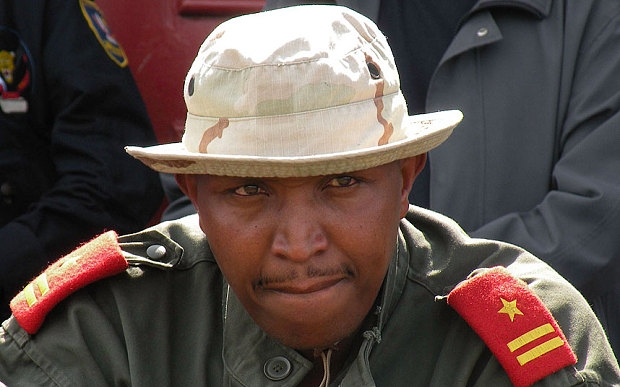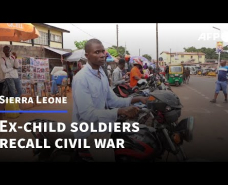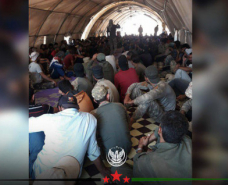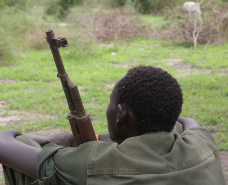Congolese child soldiers to give evidence against ‘warlord’ Bosco Ntaganda at The Hague

By Aislinn Laing, The Telegraph
Children allegedly co-opted to fighting over mineral wealth in the Democratic Republic of Congo among witnesses lined up in bid by International Criminal Court to secure rare conviction
Scores of Congolese child soldiers are due to give evidence at the International Criminal Court (ICC) in the coming weeks against a man nicknamed The Terminator and held up as one of Africa's most brutal and feared warlords.
Bosco Ntaganda, 41, a former rebel commander in the mineral-rich and restive northeastern province of Ituri in the eastern Democratic Republic of Congo, faces 18 charges of war crimes and crimes against humanity including the rape and abuse of women and child soldiers by his troops.
He was accused of presiding over abuses over a year between 2002 and 2003 but remained at large for a decade when he unexpectedly walked into the US embassy in Rwanda after the collapse of then rebel group, the M23.
As chief of military operations for the Union of Congolese Patriots, he is said by former child soldiers to have “led from the front” in a series of ethnic massacres, torture, rape, and the recruitment of children, some as young as seven, during a conflict linked to control for lucrative gold mines in the area that claimed an estimated 60,000 lives.
The ICC issued its first arrest warrant for him in 2006 but he was absorbed into the Congolese army in 2009 as part of the peace process and made general.
For years, the mustachioed, cowboy-hatted commander enraged foreign diplomats and rights groups with frequent appearances on tennis courts and at the top restaurants in the regional capital, Goma.
However, the ICC trial and conviction of his former UPC commander, Thomas Lubanga, embarrassed the Congolese government and paved the way for his detention.
Mr Ntaganda’s trial, which begins at The Hague-based ICC on Wednesday, is a major test for the 12-year-old tribunal which has been severely criticised by African leaders for unfairly focusing its efforts on the continent.
All nine of its investigations to date, resulting in the indictment of 36 people, have involved African countries, although it has also opened “preliminary” probes into countries elsewhere.
The ICC has also drawn criticism more widely for its poor conviction rate – only two people since it was established 12 years ago, one of whom was Lubanga.
At the same time, ten individuals, including Sudan’s president Omar al-Bashir, remain at large and others, such as Kenya’s president Uhuru Kenyatta, have had charges against them dropped on technicalities. Several countries including South Africa, an influential signatory to the statute that created the court, have signalled they intend to withdraw their support for the court.
Fatou Bensouda, the ICC’s chief prosecutor, told a press conference on Tuesday that Mr Ntaganda’s detention alone sent a powerful message to his victims as well as other warlords in the region.
"He is not only known in the DRC but also outside the region due to his reputation as a notorious person whose behaviour has raised alarm far beyond the Great Lakes region," she said.
Human Rights Watch said Mr Ntaganda’s trial concerned a small window of time but alleged that M23 continued to perpetrate rights abuses right up until its dissolution in 2013.
The group’s Géraldine Mattioli-Zeltner said she was confident he would be the court’s third successful conviction.
“Bosco Ntaganda evaded an ICC arrest warrant for seven years while his forces continued to commit horrific abuses,” she said. “His trial shows that justice will catch up eventually with those wanted for the most serious crimes.”
Mr Ntaganda’s lawyer told the same press conference her client was “in good shape” and looking forward to clearing his name.
"Mr Ntaganda maintains his innocence in respect of every charge laid against him. He intends to present a thorough defence," Stephane Bourgon said.
Source: The Telegraph
Photo: EPA
Countering Military Recruitment

WRI's new booklet, Countering Military Recruitment: Learning the lessons of counter-recruitment campaigns internationally, is out now. The booklet includes examples of campaigning against youth militarisation across different countries with the contribution of grassroot activists.
You can order a paperback version here.








